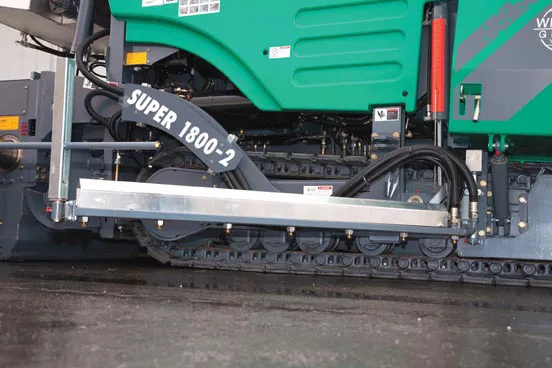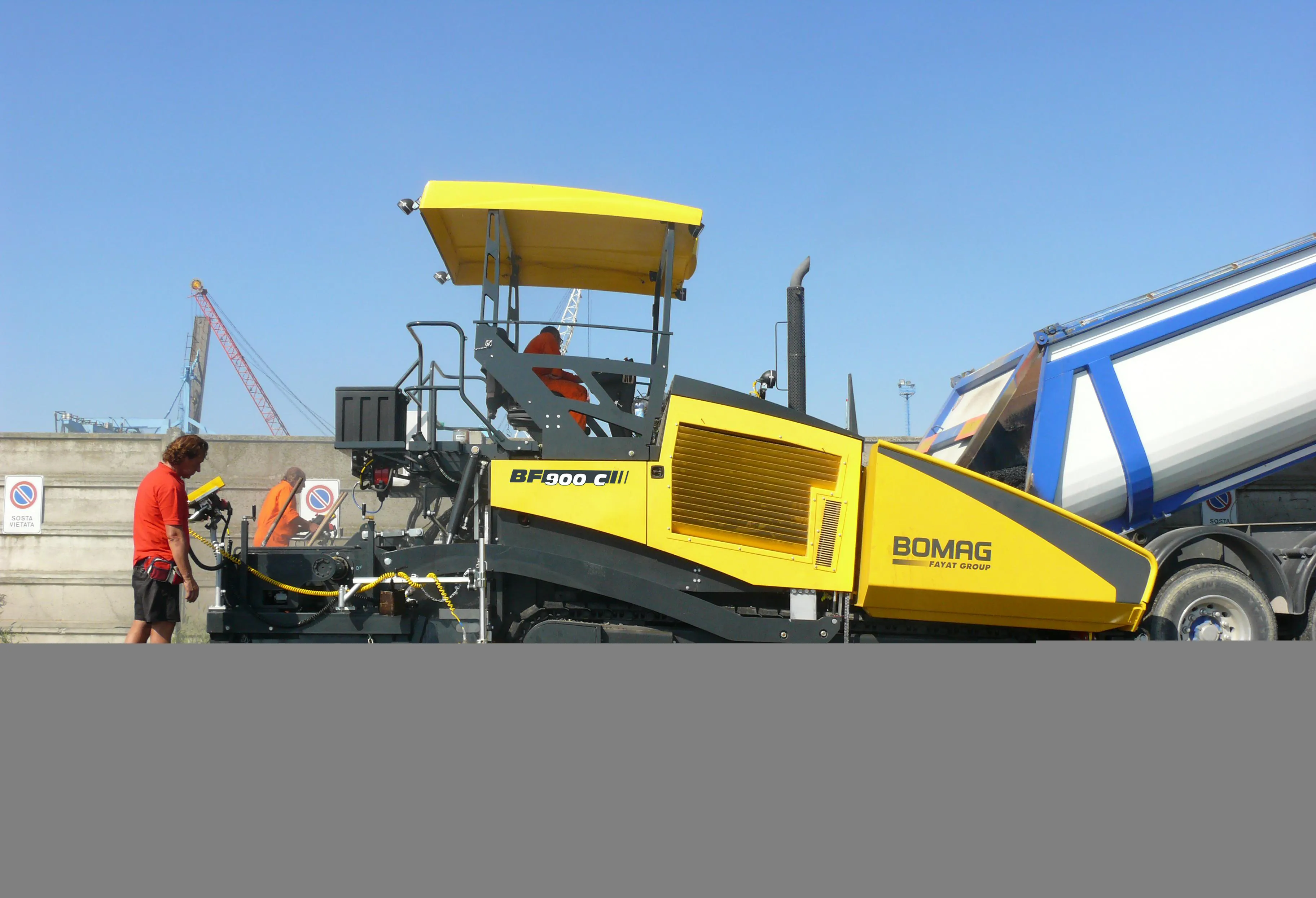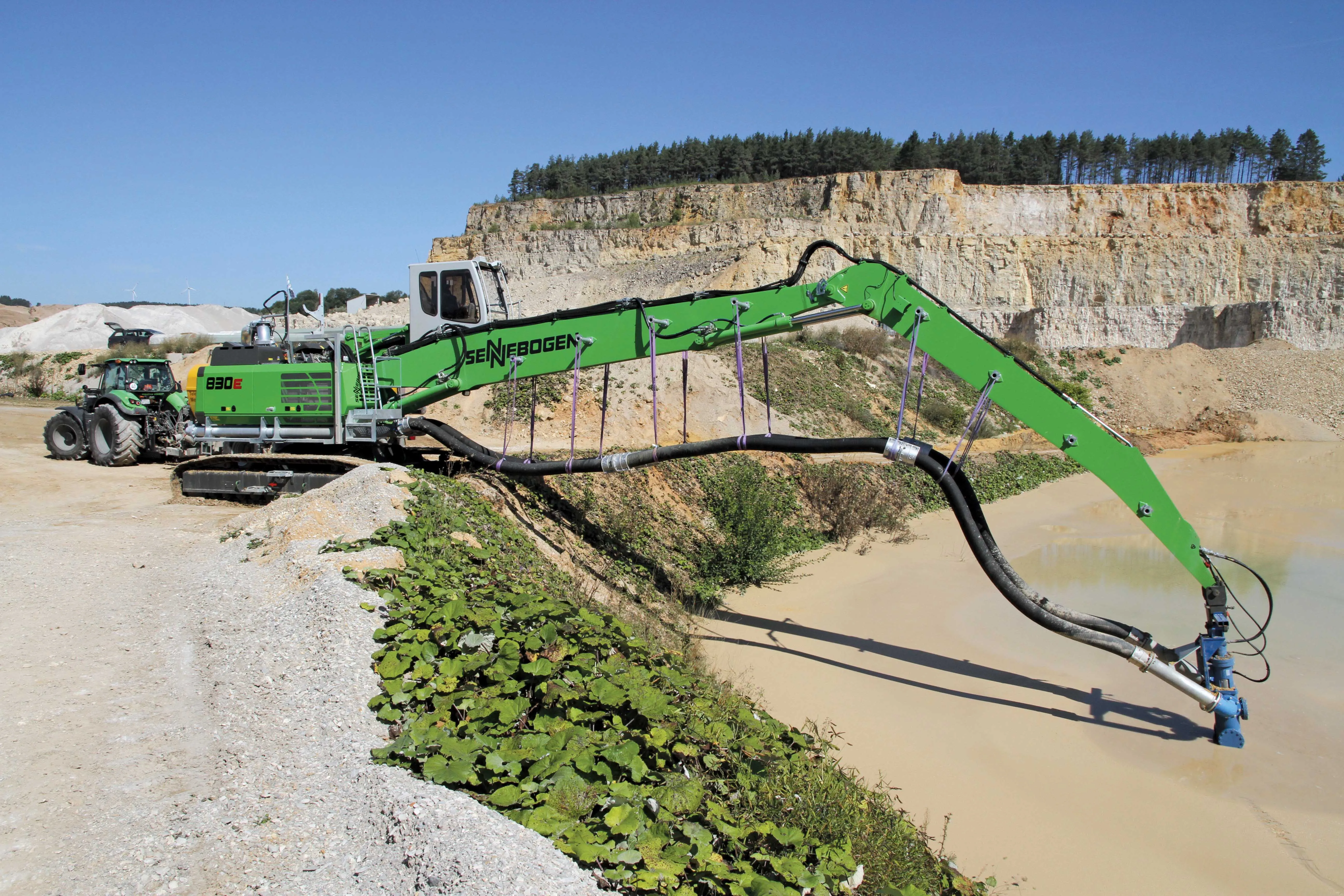Vögele expects to find new customers for its latest Sprayjet system following successful demonstrations to UK contractors. The SprayJet machine was used to repair a busy road in Ipswich, in eastern England, placing the tack coat and asphalt surface in a single pass.
February 28, 2012
Read time: 3 mins

The demonstration was carried out by Cambridgeshire based
Based on Vögele's proven Super 1800-2 paver, the SprayJet is said to provide optimum bonding between layers, keep the job site clean, and eliminate a tack coat truck from the paving train. The practice can also avoid road closures caused by overspray from tanker-based plant.
Director of contractor Finesse Neil Giddings said: "It's a good idea to integrate the paver with the bitumen emulsion spray seal or tack coat application, as it means other vehicles don't have to travel on newly sprayed emulsion. There's no soiling of other roads or overspray to passing vehicles during the process."
The SprayJet module is easily demountable, enabling it to be fitted or removed in a short time. This feature permits the use of the paver for conventional tasks, while its compact design suits it to inner-city applications and minimises transport costs.
SprayJet can alter the rate of spread of the tack coat from 0.2kg/m² upwards, allowing the bitumen emulsion to be finely metered and applied in small volumes at slow paving speeds. A low and constant spraying pressure of just 3bar allows spraying work to be performed with a minimum of spray mist and pollution.
The SprayJet module includes an emulsion tank holding 2,000litres. The operator only has to enter the desired rate of spread on the touch screen. Five adjustable spray bars with a total of 20 self-sealing spray nozzles are located at the front, sides and behind the crawler tracks.
While the tank should normally be filled with hot emulsion, the system also includes an integrated heating unit to maintain the emulsion at the desired temperature. Temperature sensors are fitted in order to prevent the emulsion from burning and automatically switch off the heating process if the emulsion level becomes too low. The heating limit can be set by the controller to a value from 0-80°C.
The Super 1800-2 SJ's ability to spray liquid asphalt or emulsion also suits it to applying for ultrathin bonded wearing courses, in which modified emulsion and aggregate can be placed in one pass.








